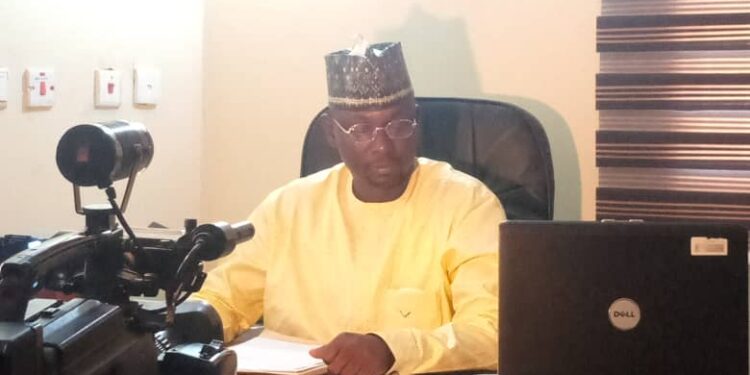The National Agency for the Prohibition of Trafficking in Persons (NAPTIP) in Gombe State said 16 persons connected to cases of child trafficking are currently in its nets.
Speaking during a press conference, State Commander Aminu Mohammed Shira said NAPTIP, a federal law enforcement agency tasked with combating human trafficking, received a case from the Nigeria Police Force in Gombe State Command on January 10, 2024, which involved 16 suspects accused of child trafficking and criminal conspiracy, were handed over to NAPTIP for further investigation and potential prosecution.
Aminu Mohammed Shira explained that Immediately after receiving the case, NAPTIP launched an investigation during which all suspects were interrogated, providing voluntary statements without any use of force or coercion.
He added that two more victims related to the case of one Aisha Shehu, a four-month-old baby girl, and Usman Kabiru, an eleven-year-old male—were rescued in Abuja and Lagos, respectively, by NAPTIP operatives.
Commander Shira revealed that the investigation found clear evidence of child trafficking, baby sale, and sexual exploitation as a result, nine suspects have been charged and face prosecution in the Federal and State Higher Court, Gombe Judiciary Division, with multiple counts based on the evidence collected.
Mohammed Shira noted that NAPTIP is committed not only to arresting and prosecuting offenders but also to rehabilitating and reintegrating victims into society.
According to him three of the involved victims are undergoing rehabilitation, with two female victims enrolled in a six-month skills acquisition training program in tailoring, sponsored by NAPTIP.
He said the agency is providing financial support and monthly allowances during the training.
Furthermore, the State Commander said, one male victim has been enrolled in Sheikh Jafar Memorial Primary School in Arawa, Gombe, to continue his education.
Commander Shira emphasized NAPTIP’s commitment to preventing the exploitation of women and children and supporting the most vulnerable in society.

